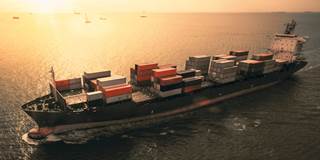It is often said that with risk comes opportunity. What initially was viewed as an unfortunate US shift to protectionism may in fact have opened a window to improve the functioning of the global economy and world trade.
MUNICH – There is a subtle yet important change occurring in how political leaders think about international trade, including how to remedy long-standing problems. It results from a key distinction between the “what” of trade (where there is relatively broad-based agreement among countries) and the “how” (where differences have tended to undermine important relationships, whether transatlantic or between China and the world’s advanced countries). As a result, there is some room for greater optimism than is suggested by talk of damaging trade wars, stifling investment restrictions, technological conflicts, and multiplying great-power tensions.
The relatively wide agreement in the international trade area tends to focus on four main hypotheses that are supported by a body of research and evidence:
First, free and fair trade is in the interest of most people in most countries, but it is not sufficient for inclusive prosperity. Specific segments of society can be displaced, marginalized, and alienated. As such, trade is not just an economic issue. It also entails important institutional, political, and social dimensions.

MUNICH – There is a subtle yet important change occurring in how political leaders think about international trade, including how to remedy long-standing problems. It results from a key distinction between the “what” of trade (where there is relatively broad-based agreement among countries) and the “how” (where differences have tended to undermine important relationships, whether transatlantic or between China and the world’s advanced countries). As a result, there is some room for greater optimism than is suggested by talk of damaging trade wars, stifling investment restrictions, technological conflicts, and multiplying great-power tensions.
The relatively wide agreement in the international trade area tends to focus on four main hypotheses that are supported by a body of research and evidence:
First, free and fair trade is in the interest of most people in most countries, but it is not sufficient for inclusive prosperity. Specific segments of society can be displaced, marginalized, and alienated. As such, trade is not just an economic issue. It also entails important institutional, political, and social dimensions.